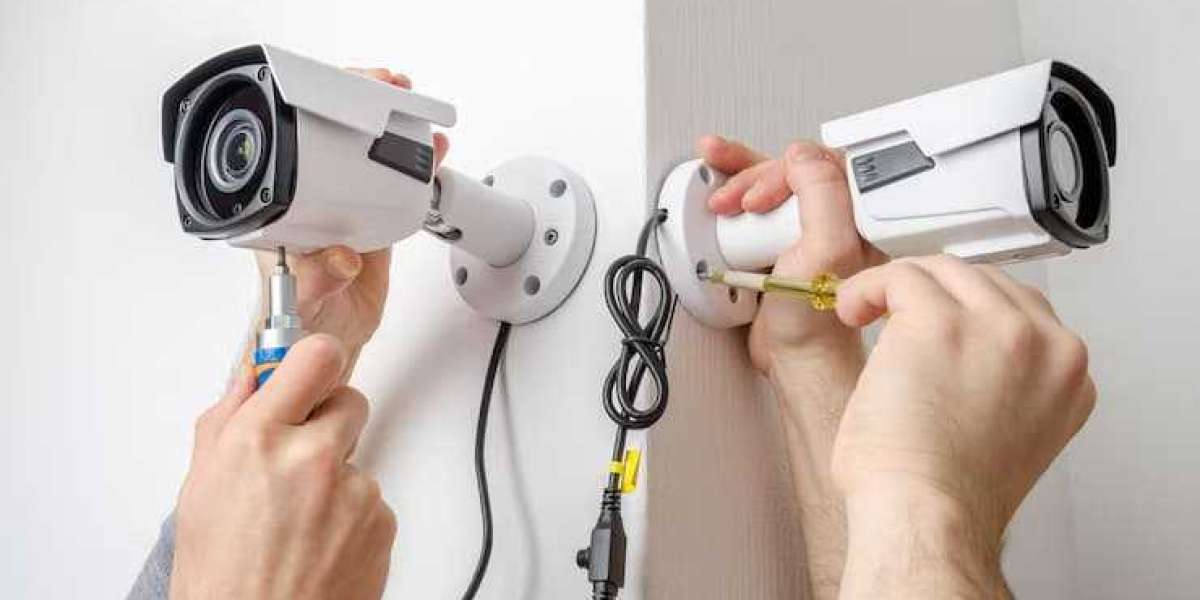In an age where safety and security have become paramount, the decision to install CCTV cameras in a home is a proactive step that many homeowners are taking. As crime rates fluctuate and the need for personal security becomes increasingly pressing, understanding the implications, benefits, and considerations of installing a closed-circuit television system is essential.
Understanding the Basics of CCTV Installation
Before delving into the specifics of what to expect, it is vital to grasp the fundamental purpose of CCTV systems. These surveillance cameras are designed to monitor and record activity in and around your property. When you choose to install CCTV, you embark on a journey that not only enhances your home security but also provides peace of mind. The installation process typically begins with a comprehensive assessment of your property. This includes identifying vulnerable areas that require monitoring, such as entry points, driveways, and backyards.
Furthermore, understanding the different types of cameras available is crucial. From dome cameras that offer discreet surveillance to bullet cameras that provide long-range views, each type serves a specific purpose based on your security needs. Additionally, the advancement of technology has led to the emergence of smart CCTV systems that can be accessed remotely via smartphones or tablets. This level of convenience allows homeowners to keep an eye on their property from virtually anywhere, adding another layer of security.
The Installation Process: What to Expect
Once you have decided to install CCTV, the next phase involves the actual installation process. Depending on the complexity of your system and the layout of your home, this can vary significantly. Generally, a professional installation service will evaluate your needs and suggest an optimal setup. This includes determining the placement of cameras for maximum coverage and effectiveness.
During the installation, expect the technicians to run cables, mount cameras, and connect the system to your home network. One of the first things homeowners notice is the disruption that can occur during this phase. While it may be tempting to try a DIY approach, hiring professionals ensures that the system is installed correctly, minimizing potential blind spots and maximizing functionality.
Additionally, it is essential to consider the power source for the cameras. Some systems are wired, while others are wireless. Wired systems offer reliability, but the installation can be more invasive, whereas wireless systems provide flexibility and ease of installation. Homeowners should weigh the pros and cons of each option carefully, as this choice will affect both the immediate installation experience and long-term maintenance.
Enhancing Security: The Benefits of CCTV
The primary benefit of installing a CCTV system is undoubtedly enhanced security. A well-placed camera can act as a deterrent to potential intruders, as the visibility of surveillance offers a strong psychological barrier. Studies have shown that homes equipped with CCTV are less likely to be targeted by criminals. In fact, a report from the University of North Carolina found that 60% of burglars would avoid homes with visible security systems.
Moreover, CCTV systems offer the advantage of real-time monitoring. Homeowners can observe their property live, whether they are on vacation or at work. This capability empowers individuals to respond swiftly to any suspicious activity, potentially preventing crime before it occurs. Additionally, recorded footage can be invaluable for law enforcement in the unfortunate event of a crime. Having documented evidence can significantly aid investigations and increase the chances of recovering stolen property.
Another often-overlooked benefit is the ability to monitor household activities. For families with young children or elderly relatives, CCTV can provide an extra layer of oversight. Parents can check in on their kids playing in the backyard, while caregivers can ensure that elderly family members are safe and secure indoors. This multi-faceted approach to surveillance adds a level of comfort that extends beyond mere crime prevention.
Privacy Considerations and Legal Implications
While the advantages of installing CCTV are numerous, it is essential to consider the potential privacy implications. Homeowners must be aware of the legal frameworks governing surveillance in their area. In many jurisdictions, it is illegal to record audio without consent, and certain regulations dictate where cameras can be placed. For example, cameras should not intrude on neighboring properties or public spaces where individuals have a reasonable expectation of privacy.
Moreover, transparency is key when it comes to CCTV surveillance. Informing family members and guests about the presence of cameras fosters trust and reduces potential conflicts. Additionally, displaying signage indicating that your property is under surveillance can further deter unwanted intrusions while keeping everyone aware of their surroundings.
Understanding the balance between security and privacy is crucial for responsible CCTV usage. Homeowners should regularly review their camera placements and ensure that they are only recording areas necessary for security purposes. This not only protects the privacy of others but also ensures compliance with local laws.
Ongoing Maintenance and Upgrades
After the initial installation and configuration, maintaining your CCTV system is critical to ensure its longevity and effectiveness. Regular checks on the cameras for any obstructions, cleaning the lenses, and verifying that the recording and storage systems are functioning correctly can prevent issues down the line. Many systems offer alerts for maintenance needs, allowing homeowners to stay informed and proactive.
As technology evolves, the option to upgrade your system should also be considered. New features, such as enhanced resolution, night vision capabilities, and improved motion detection, can significantly enhance the functionality of your CCTV setup. Staying informed about the latest advancements in security technology can empower homeowners to make informed decisions about potential upgrades that align with their security needs.
Conclusion
In summary, installing CCTV at home is a strategic investment that enhances security, offers peace of mind, and promotes safety. The process involves understanding the types of cameras available, considering privacy and legal implications, and committing to regular maintenance to ensure optimal performance. As homeowners navigate this journey, the benefits they reap will undoubtedly outweigh the challenges faced during installation and upkeep.
For those looking to elevate their home security measures, the time has never been better to explore options in surveillance technology. By choosing to partner with CCTV, you are not just installing cameras; you are investing in a safer, more secure living environment for yourself and your loved ones. Don't wait until it's too late—take action today and protect what matters most!







